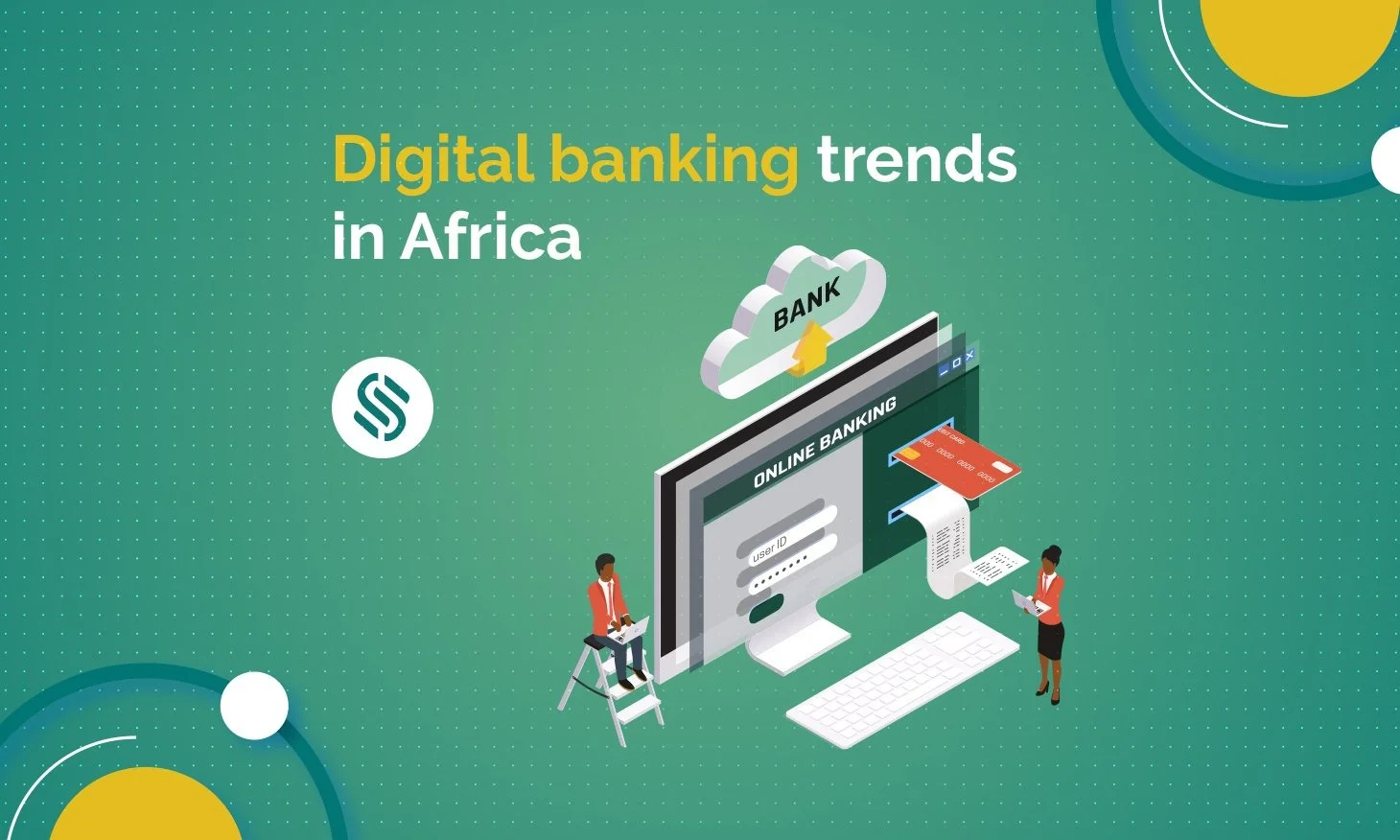Digital banking trends in Africa

The sudden emergence of coronavirus dealt a severe blow in African countries causing a rapid economic contraction. The pandemic impacted business across industries, including the finance sector. Now, as Africa starts to get back on track and look forward to recovery, technology is bound to play a crucial role, especially for banks.
There’s no doubt that African banks recognize the importance of digital technologies in banking services. The opportunities for banks to progress and digitize their services through technology are massive. Here’s a look at the noteworthy digital banking trends that will or are already transforming banks and financial institutions in Africa.
Cloud service model
Traditional and non-traditional banks in Africa are responding to customer requirements by bringing better flexibility to their services with modern cloud-based infrastructure. New cloud solutions use the digital way to boost financial inclusion, enhance customer experiences, enhance back-office efficiency, minimize operational risk and accelerate innovation.
“Financial inclusion in Africa is on the rise, and cloud is set to become a major driver,” states Pieter Zylstra, Regional Director Digital Transformation (IMEAR) of Orange Business Services.
Cloud computing can offer banks and financial institutions many benefits, such as:
- Flexibility in operations and services
- Cost savings
- Business agility
- Green IT
Ecobank, the pan-African bank operating in many African countries, has adopted cloud technologies (hybrid cloud) to reach millions of customers across the African continent.
Attijariwafa bank, a Moroccan multinational commercial bank has implemented a cloud system to digitize its core operations, and speed up the offering of digital services to its customers.
TymeBank, a new digital-only bank in South Africa has saved 56% of its costs compared to other startups with the help of cloud technologies.
Before moving to cloud solutions, banks must consider the challenges around data security, regulatory compliance, cost of shifting infrastructure, and quality of services.
Partnering with fintechs
Many African countries are witnessing a strong inflow of fintech startups over the past few years. These startups are changing the way of banking with better usage of technologies and personalized offerings.
Nigeria has around 250 companies in the fintech space, and the market revenue is expected to reach $543.3 million in 2022, up from $153.1 million in 2017.
South Africa boasts more than 20 fintech companies offering a variety of services in digital payments, lending, investments, and b2b tech support.
Tanzania is amongst the fastest-growing African countries in terms of mobile money adoption with more than 16.5 million active mobile money users.
This strong emergence of fintech startups has completely changed the Fintech vs banks scenario. Many traditional banks in Africa have started partnering with fintechs rather than competing. With such partnerships banks in Africa can get access to modern technologies from fintech startups to enable digital solutions for the customers. They will be able to help banks reach regions where having physical branches is not possible.
Coreless banking
The biggest challenge for any bank to start digital transformation could be replacing its core system. While some banks in Africa have made progress, the challenge is that all software and systems are deeply integrated and any change requires a complete change to the whole infrastructure. The data from McKinsey states that over 66% of core banking transformations fail due to this reason.
Banks see the solution to this problem in coreless banking.
Coreless banking is a new banking system where there is no dependence between different systems and parts of a bank. It means each system can work and be updated independently.
Although it’s a new concept, many believe that it can enable the speedier digitization of banking operations without replacing the core system. Some notable benefits of this new form of the banking system are:
- Faster implementation of new software
- The possibility of upgrading one process without affecting others
- Enhanced flexibility in banking operations
- Increased potential for speedier digitization
Several changes towards digital transformation are happening in the African banking sector. It is important to know how banks in Africa perceive this new concept and what value proposition it adds to them.

Comments